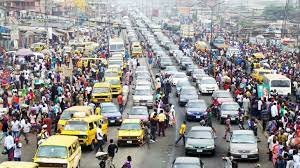
Traffic congestion occurs when there is a disparity between the demand for road space and its availability. It is typically characterized by heavy traffic, stop-and-go movement, and extended travel durations during peak hours. Congestion can manifest on highways, major city roads, intersections, and even in parking lots.
Causes of Traffic Congestion
High Vehicle Volume: As cities grow and populations increase, the number of vehicles on the road rises correspondingly. Insufficient road capacity to accommodate this growing demand leads to congestion.
Inadequate Infrastructure: Insufficient road networks, poorly designed intersections, lack of alternative transportation options, and inadequate public transportation systems contribute to traffic congestion.
Bottlenecks: Bottlenecks, such as narrow bridges, tunnels, or poorly planned road merges, impede traffic flow and cause congestion.
Traffic Incidents and Accidents: Collisions, breakdowns, or other unexpected incidents disrupt the smooth flow of traffic, causing congestion.
Inefficient Traffic Management: Poorly synchronized traffic signals, ineffective lane management, and absence of real-time traffic monitoring exacerbate congestion problems.
Traffic congestion is a pressing issue that affects urban areas around the world, and Nigeria is no exception. With a rapidly growing population and increasing urbanization, Nigerian cities are grappling with severe traffic congestion problems.
This article aims to explore the economic impacts of traffic congestion in Nigeria and shed light on potential solutions to address this issue.
Nigeria, being the most populous country in Africa, faces significant challenges in managing traffic congestion. Major cities such as Lagos, Abuja, and Port Harcourt experience daily traffic gridlocks, resulting in wasted time, increased fuel consumption, and adverse economic consequences.
a. Lagos: Lagos, Nigeria's economic hub, bears the brunt of severe traffic congestion. According to the World Bank, Lagosians spend an average of 30 hours per week in traffic, resulting in lost productivity and economic opportunities.
b. Abuja: Nigeria's capital city, Abuja, is also plagued by traffic congestion, especially during peak hours. The rapid population growth and inadequate infrastructure have contributed to the worsening traffic situation.
c. Port Harcourt: As an important industrial and commercial center, Port Harcourt faces traffic congestion due to the heavy flow of goods and services. The city's inadequate road network exacerbates the problem, resulting in increased travel time and economic inefficiencies.
Economic Impacts of Traffic Congestion
a. Lost Productivity: Traffic congestion leads to significant productivity losses as commuters spend valuable hours stuck in traffic. This lost time could have been utilized for work or other economically productive activities. The cumulative effect of lost productivity has a detrimental impact on individual incomes, business operations, and overall economic growth.
b. Increased Fuel Consumption: Congested traffic requires vehicles to operate at suboptimal speeds, resulting in increased fuel consumption. This not only places a financial burden on individuals but also contributes to higher levels of air pollution, negatively affecting public health and the environment.
c. Impaired Trade and Logistics: Traffic congestion disrupts the flow of goods and services, leading to delays in the delivery of products and increased logistics costs. Businesses relying on timely transportation suffer from reduced efficiency, lost sales, and potential reputational damage.
d. Higher Infrastructure Maintenance Costs: Traffic congestion places additional strain on road infrastructure, leading to faster deterioration and increased maintenance costs. Frequent repairs and upgrades are required to mitigate the effects of congestion, diverting resources from other crucial development projects.
e. Inefficiencies in Public Transportation: Public transportation systems also suffer from traffic congestion, resulting in delays, overcrowding, and decreased reliability. This discourages potential users from relying on public transport, exacerbating congestion further as more people resort to private vehicles.
Potential Solutions
To tackle the issue of traffic congestion and mitigate its economic impacts, Nigeria needs a multi-faceted approach encompassing infrastructure development, public transportation improvements, and policy interventions.
a. Infrastructure Development: Investment in road infrastructure, including the construction of new roads, expansion of existing ones, and implementation of intelligent transportation systems, can alleviate traffic congestion.
Additionally, improving the maintenance and management of road networks will contribute to long-term solutions.
b. Public Transportation Enhancements: Investing in reliable, efficient, and affordable public transportation systems, such as buses, trams, and trains, can incentivize commuters to shift from private vehicles.
Expanding the reach and capacity of public transport networks, along with integrated ticketing systems, can improve overall mobility and reduce traffic congestion.
c. Traffic Management and Planning: Implementing effective traffic management strategies, including intelligent traffic signaling systems, congestion pricing, and carpooling initiatives, can help regulate traffic flow and reduce congestion.
Proper urban planning, with an emphasis on mixed land-use development and pedestrian-friendly infrastructure, can also discourage excessive car usage.
d. Encouraging Non-Motorized Transport: Promoting non-motorized modes of transport, such as cycling and walking, through the provision of dedicated lanes, bike-sharing programs, and pedestrian-friendly infrastructure, can reduce the number of vehicles on the road and ease congestion.
e. Behavioral Change and Awareness Campaigns: Encouraging behavioral change among commuters, such as adopting carpooling practices, flexible work hours, and telecommuting, can help alleviate traffic congestion.
Awareness campaigns on the economic and environmental impacts of traffic congestion can also foster a sense of responsibility among citizens.
Traffic congestion imposes significant economic burdens on Nigeria, hampering productivity, increasing fuel consumption, and impeding trade and logistics.
However, with comprehensive and integrated solutions such as infrastructure development, public transportation enhancements, traffic management strategies, and behavioral change initiatives, Nigeria can effectively address this issue.
By prioritizing efficient mobility systems, Nigeria can unlock its economic potential, improve the quality of life for its citizens, and pave the way for sustainable urban development.


















